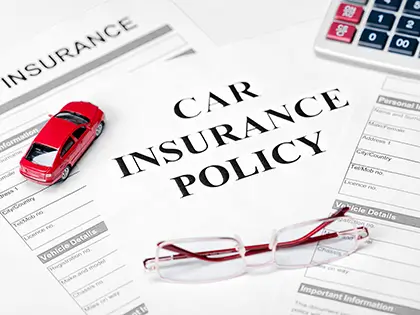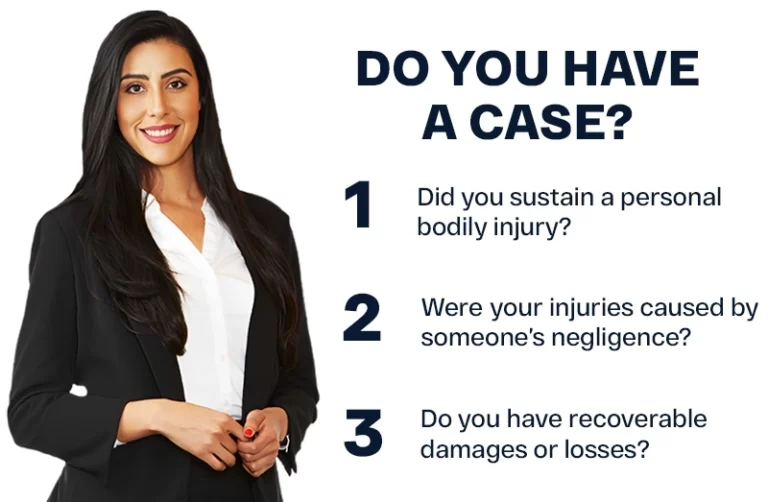TL;DR: As a car insurance policyholder in California, you have the right to clear communication, fair claims handling, timely payments, and protection from unfair cancellations. Knowing these rights could help you navigate claims and disputes more effectively.
Table of Contents
As an insurance policyholder in California, you have several rights defined in various laws. However, it could be challenging to keep them all in mind if you need to engage with insurance companies after an accident. Enlisting the help of a skilled personal injury lawyer to guide you through the legal intricacies could be helpful. While the process might seem daunting, you don’t have to navigate it alone.
Our committed group of experienced car accident lawyers at Arash Law is prepared to offer legal representation and assistance. We can be by your side every step, advocating for your rights and interests throughout the process.
In California, demonstrating financial responsibility (insurance) for any vehicle you own is a legal requirement, particularly in cases of injury to others or property damage. Acquiring auto liability insurance is the most common way people establish such financial responsibility. Section 16020 of the California Vehicle Code states that “all drivers and vehicle owners must continually demonstrate financial responsibility and carry evidence of their vehicle’s current financial responsibility.” Failure to have auto liability insurance can result in fines, license suspension, and vehicle impoundment.
Car insurance serves as a safety net, covering expenses related to injuries and damages resulting from owning and operating a vehicle. Given that your insurance policy is a legally binding agreement, it is vital to grasp its contents. When you purchase an insurance policy, you are granted specific rights as a policyholder. California has extensive laws in place to safeguard insurance policyholders, covering claims processing and fair treatment standards.
Your insurance company must adhere to these laws when you file a claim. The purpose of these regulations is to promote fair treatment from your insurance provider.
If, however, you find yourself subjected to unfair treatment by your car insurance company following a claim, the car accident claims lawyers at Arash Law can help you understand your rights and advocate for fairer treatment from your insurer.
Your rights as an insurance consumer are outlined in these four legal bases: the California Insurance Code (INS), California Insurance Regulations (Title 10, Chapter 5), Fair Claims Settlement Practices Regulations (Title 10, Chapter 5, Subchapter 7.5), and notices and bulletins issued by the California Department of Insurance.
While it can be helpful to understand your car insurance before you find yourself in an accident, you can also learn more about your policy after a recent collision. Car insurance laws can be complex, but we can help simplify the essential aspects to provide you with the knowledge to navigate the process should you decide to pursue a claim.
What Is Insurance?
Insurance is a primary means for individuals and businesses to mitigate the financial repercussions of unexpected risks. It can be obtained to safeguard against various risks such as fire, theft, personal injury claims, natural disasters (like floods or tornadoes), property damage, and more. For instance, if you have fire insurance for your home or business property, your insurance company will provide funds to help you rebuild or replace the structure if a fire destroys it.
It’s essential to understand key concepts. An insurance agreement represents a contract between you (the insured) and the insurance company (the insurer). This agreement outlines the specific risks, perils, or medical conditions covered by the policy. If you experience these covered events, you can file a claim with the insurer.
Insurance policies consist of several provisions. “Coverages” define the types of risks the policy protects against. For example, in auto insurance, “liability coverage” pays for damages if you’re responsible for an accident that caused harm or property damage. It can also cover legal defense costs in case of a lawsuit. “Collision coverage” assists in repairing your vehicle after an accident, while “comprehensive coverage” handles non-collision-related damage, such as theft or natural disasters. “Medical payments coverage” covers medical expenses for anyone injured in your vehicle, regardless of fault. Each coverage has provisions specifying what’s claimable, excluded, and your responsibilities as the insured.
Understanding real-world scenarios is important to grasping how an insurance company’s responsibilities come into play. Suppose you have home insurance, and a fire breaks out in your home, injuring you and your neighbor. In this case, there are multiple harms: your injuries, your neighbor’s injuries, and damage to your property. Insurance policies revolve around “coverages” for such harms, outlining what they encompass.
These coverages encompass the harms covered by the policy. The insurance company sells different kinds of policies based on these covered harms, with most policyholders paying premiums but not filing claims. The collective premiums cover the losses incurred by the small percentage of policyholders experiencing a loss.
Returning to the example, if your house burns down, and you or your neighbor is injured, you’ll file a claim with your insurance company for your injuries and property damage. Your neighbor may choose to file a claim or a lawsuit against you. This lawsuit activates coverages on your insurance policy, such as provisions covering injuries to others on your property and the insurer’s duty to defend you in such a lawsuit.
Insurance policies and laws usually categorize harms into two types: those incurred by the policyholder (first party) and those affecting others (third party). These trigger different duties. For instance, your homeowner’s policy covers your damages (first-party), like rebuilding your house. Additionally, it may include general liability coverage, protecting you against lawsuits from others (third-party) harmed by your house fire.
At the core of claims and lawsuits lies the concept of liability, which can become complicated. This complexity is one reason to consider consulting a lawyer for car accident cases to assess your rights and risks. Liability refers to the harm an insurance company must cover. Suppose your insurer denies liability and refuses assistance in the neighbor’s injury lawsuit. In that case, you might need to defend the lawsuit, determine responsibility and damages, and potentially file a lawsuit against the insurer for legal costs and damages, leading to a challenging situation.
Responsibilities Of An Insurance Company: Your Rights Explained
Insurance companies have certain obligations to policyholders, and understanding these duties can be helpful. Here, we break down these responsibilities clearly so you know what to expect from your insurer. If these duties are breached, the insurance company may be held accountable for any damages.
- Duty to Defend — When a third party files a claim against you, your insurance company must defend you. They are required to appoint and cover the expenses of a lawyer to represent your interests and cover all litigation costs. This duty is extensive, encompassing all claims potentially covered by your policy based on the facts alleged or otherwise disclosed in the claim. Courts have emphasized that a “meaningful defense” includes addressing all claims and aims to prevent scenarios where only a few claims are addressed.
- Duty to Indemnify — Although often complex in contract language, indemnity is a straightforward concept, which means one party must compensate another for incurred losses. If you’re found liable to a third party as a policyholder, your insurer must pay for the damages, at least up to the policy limits. In insurance terms, this payment is termed indemnity.
- Duty of Good Faith and Fair Dealing — A special relationship exists between insurance companies and policyholders, establishing a duty of “good faith and fair dealing” as recognized by courts. This relationship is essentially about providing policyholders with “peace of mind.” To fulfill this obligation, insurers must act in the best interest of policyholders. If they fail to do so, they may be accused of “bad faith,” which could lead to severe penalties, including the possibility of punitive damages for their actions.
- Duty to Fairly & Quickly Manage Claims — Whether a first-party or third-party claim, insurers must promptly and fairly investigate it and fulfill policy benefits, including paying valid claims. The insurance company’s duty of “good faith and fair dealing” governs these duties, which must be carried out with reasonable speed.
- Duty to Disclose Conflicts — Various conflicts can arise in an insurance case, which must be transparently disclosed to the insured. The attorney representing the insurance company and the policyholder must balance both parties’ interests. If a conflict of interest arises, the defense attorney must inform both sides. In many cases, conflicts necessitate a separate attorney for the insured, paid for by the insurance company, referred to as Cumis counsel.
One common conflict involves the defense attorney potentially prioritizing the insurer’s interests over the policyholder’s, aiming to avoid exceeding policy limits. It may conflict with the policyholder’s desire for a settlement within the policy limits. Another conflict arises when an insurer disputes specific claims’ coverage, issuing a “reservation of rights” letter to deny coverage later. These conflicts could lead to defense strategies that may not align with the insured’s interests. In California, such a letter often signals a conflict, allowing the insured to choose separate representation.
- Duty to Hire Separate Lawyer or Cumis Counsel — When conflicts prevent the insured from receiving a proper defense, the insurance company must hire and pay for a separate lawyer known as Cumis counsel. These attorneys represent the defendant when a conflict of interest exists between the insurer and the insured. A separate attorney could help provide defense for the insured, even though conflicts are common. However, the disclosure of conflicts and the appointment of Cumis counsel are not widespread practices. In some cases, insurance companies have had to compensate for damages due to the failure to provide Cumis counsel.
- Duty to Settle Within Insurance Policy Limits — Insurers should make genuine efforts to settle claims within their policy limits, irrespective of the other party’s demands. Failure to do so could lead to accusations of “bad faith” by the insurance company.
Understanding Your Auto Insurance Policy: What You Need To Know
Your car insurance policy serves as a legally binding agreement between you and your insurance company, outlining key aspects:
- Your Costs — This details the expenses associated with your policy.
- Your Coverages — These encompass the various scenarios and items your policy protects.
- Your Exclusions — These specify what your policy does not cover.
Key Steps To Take
Before the need arises, consider acquainting yourself with your auto insurance policy. Take the time to thoroughly read and comprehend it, as it holds valuable information. The Declarations page, in particular, offers a concise overview of your policy. Contact your agent, broker, or insurance company for clarification if any part of your policy appears unclear or raises questions.
It’s essential to keep them informed if you buy or sell a vehicle or add new drivers to your household. However, before entrusting your car to others, it’s prudent to review your policy. Some drivers may be excluded, meaning your policy will not cover accidents while they are behind the wheel.
Usually, the insurance company will suggest a body shop for you, but you have the option to choose a different one if you prefer. After a crash, you may wonder if you must use the body shop your insurance company suggests or if you can find one on your own. If you find a body shop yourself, how do you know if this repair shop is better than the others? Our car accident attorneys can help you understand your options, including how to choose the right autobody shop to repair your car after an accident.
Acting In Good Faith
In the insurance realm, honesty is the foundation of trust. Your insurance representatives, including claims adjusters, are legally bound to maintain transparency regarding your policy coverage and its limitations. This commitment to honesty extends from the initial policy sale through all interactions, including claims processing.
Under California law, insurance providers must conduct a thorough and reasonable investigation into your claim. If they offer a settlement, it should reflect a “good faith” effort to provide a fair, prompt, and equitable resolution, especially if your claim is worth less than its actual value.
Nevertheless, it’s essential to recognize that not all insurance companies consistently act in good faith. In cases where insurers engage in “bad faith” practices, they may be violating state laws and subject to severe repercussions. Policyholders unfamiliar with their rights and unsure of how to respond to bad faith practices can work with a knowledgeable attorney to advocate on their behalf.
Complete Transparency
California’s insurance landscape mandates that insurance companies furnish policyholders with precise and comprehensive information related to their policies. This obligation encompasses the disclosure of deadlines, including California’s statute of limitations for initiating a lawsuit.
Furthermore, California insurers are legally bound to maintain open and timely lines of communication with policyholders. This means insurance claims adjusters can only consider phone calls, emails, or other forms of communication from clients with a valid cause. For specific requests, such as obtaining a copy of your current policy and policy history, the law mandates that insurance companies comply within a reasonable timeframe, typically within 15 days of your request.
Your Right To A Fair Claims Process
You have the right to a fair investigation and claims process. The insurance company must not create barriers or unreasonable requirements for filing your claim, such as:
- An insurer may not ignore evidence you or your attorney provided, including photos or videos of your injuries, damage to your vehicle or the crash scene, police reports, or witness statements.
- An insurer may not ask for unreasonable proof of loss, such as secondary proof.
- An insurer may not require the exclusive use of its forms.
- An insurer must provide a copy of every claim-related document in your file upon request.
It is important to note that a fair claims process also means the insurance company has the right to receive honest, accurate, and prompt statements from you when you file a claim.
California Car Insurance Requirements
In California, all motorists must adhere to specific car insurance coverage requirements. These requirements are intended to safeguard drivers and the general public in the event of accidents or unforeseen incidents. Below, we have compiled a simplified breakdown of these essential insurance requirements:
| Coverage Type | Minimum Coverage Amounts |
| Bodily Injury Liability | $60,000 per person, $30,000 per accident |
| Property Damage Liability | $15,000 |
| Uninsured Motorist (Bodily Injury) | $15,000 per person, $30,000 per accident |
| Uninsured Motorist (Property Damage) | $3,500 |
While these minimum coverage amounts are obligatory for California drivers, a few exceptions exist. Motorists can:
- Pay a cash deposit of $35,000 to the California Department of Motor Vehicles (DMV).
- Obtain a self-insurance certificate issued by the California DMV.
- Procure a $35,000 surety bond from a licensed issuer within the state.
Understanding and complying with these requirements is vital for every California driver, as failure to do so may lead to legal repercussions and potential financial liabilities. Evaluating your unique insurance needs and selecting the coverage options that best align with your circumstances can help you pursue appropriate insurance coverage when necessary. Most drivers in California have acquired an automobile insurance policy.
California Collision And Comprehensive Insurance
In California, collision and comprehensive insurance are optional add-ons to your auto insurance policy.
Collision insurance comes into play when your vehicle is damaged due to an accident involving another vehicle, a pedestrian, or other objects like mailboxes, garbage cans, fences, or sidewalks. It can cover the expenses for repairing or replacing your vehicle. On the other hand, comprehensive insurance covers damages caused by non-collision events such as hail, fire, falling trees or branches, power lines, theft, vandalism, and earthquakes.
It is worth noting that while California law does not require collision and comprehensive insurance, some lenders may make it a requirement if you’re financing or leasing a vehicle.
The critical distinction between mandatory and optional coverage lies in who and what is protected. The required property damage liability insurance, set at $15,000, covers damages to the property of others in an accident. Collision and comprehensive insurance, however, can extend coverage beyond this $15,000 limit, including covering damages to your vehicle.
Typically, collision and comprehensive insurance will pay for repair or replacement costs up to your policy limit, often determined by the current market value of your vehicle. It’s important to remember that the purpose of insurance is not to provide a windfall but to restore you to your financial position before the incident occurred. Therefore, your insurance adjuster will assess your damaged vehicle’s current market value, often referencing sources like Kelley Blue Book.
For instance, if your damaged car is a 15-year-old mid-range sedan, your insurance payout will likely reflect the amount you could reasonably expect to receive if you were selling or trading in that vehicle. In essence, insurance doesn’t typically grant you an upgrade from an older sedan to a brand-new luxury SUV based on the payout.
What’s The Benefit Of Collision And Comprehensive Coverage?
Collision and comprehensive coverage represent distinct facets of auto insurance that set them apart from liability coverage. While liability insurance focuses on covering damage to the other party’s property in the event of an accident where you are at fault, collision and comprehensive coverage serve a different purpose.
Firstly, liability insurance does not extend its protection to cover the damages to your vehicle as the at-fault driver. Additionally, it does not encompass non-collision damages inflicted upon your vehicle due to natural elements like hail, falling tree limbs, acts of nature, or vandalism.
Now, let’s consider the scenarios:
- When You Are at Fault — In instances where you are deemed responsible for an accident, collision insurance covers repairing or replacing your vehicle. Without collision insurance, these expenses would fall squarely on your shoulders.
- When the Other Driver Is at Fault — If the fault lies with the other driver involved in the accident, their liability insurance will primarily cover the costs of your vehicle repairs. However, if the damages exceed the limits of their policy, your collision insurance can bridge the financial gap and cover additional expenses.
- Determining the Cost — The cost of collision and comprehensive insurance hinges on several important factors.
- Policy Limits — This is typically influenced by the current market value of your vehicle. The higher the value, the more comprehensive your coverage may need to be.
- Deductible Amount — Your chosen deductible amount plays a role in determining your premium. Opting for a higher deductible can lower your premium costs, but it also means you’ll be responsible for a larger portion of the expenses in case of a claim.
Why Opt For Collision And Comprehensive Coverage?
Accidents can occur in the unpredictable realm of driving despite your utmost caution and diligence. When damages exceed the confines of your policy limits, you could find yourself facing substantial financial liabilities. Collision and comprehensive coverage policies can act as a safeguard, protecting your assets from these unforeseen and potentially hefty costs.
California Uninsured/Underinsured Motorist (UM/UIM) Coverage
Some states require uninsured or underinsured motorist coverage, but California does not. Still, you may buy this insurance to protect you if an accident happens and the other driver isn’t adequately insured.
Uninsured Drivers In California: Your Rights Under The Law
California, known for its stunning landscapes and bustling cities, has one of the highest rates of uninsured drivers in the country. Some studies reveal that nearly one in six California drivers could be operating vehicles without the required insurance.
The state has a set of regulations, known as the “California Fair Claims Settlement Practices Regulations,” that safeguard the rights of policyholders and advocate for fair treatment by insurance companies. These regulations establish specific responsibilities for insurance companies beyond merely offering coverage.
Exploring Additional Medical Coverage Options In California — PIP And MedPay Insurance
In auto insurance, supplemental coverage options exist to address policyholders’ specific medical needs. Personal Injury Protection and Medical Payment Benefits insurance, also known as PIP and MedPay, are two options. As stated, these insurance types are optional and not obligatory in California, meaning the state does not mandate drivers to carry them.
Understanding MedPay
MedPay can be a valuable addition to your auto insurance policy, offering coverage for medical expenses resulting from a car accident. What sets MedPay apart is its inclusivity. It extends its protective mantle to encompass injuries sustained by you or your passengers, irrespective of fault. In other words, MedPay steps in to assist with medical costs regardless of whether you were responsible for the accident or not.
This key insight means that MedPay could provide protection without consequence. Beyond that, another noteworthy facet of MedPay is its unique characteristic of insurance rate adjustments. Suppose you are in an accident where you are not at fault and utilize your MedPay coverage for medical expenses. In that case, your insurance company is prohibited from increasing your insurance rates. In California, this protection generally prevents medical care following an accident from resulting in higher insurance premiums.
PIP Insurance: An Additional Layer Of Coverage
Personal Injury Protection (PIP) insurance, like MedPay, is an optional safeguard for policyholders. It goes beyond covering medical expenses to encompass other associated costs, such as lost wages and essential services. PIP offers a more comprehensive safety net for those involved in auto accidents.
The Power Of Choice
In California, deciding to include MedPay or PIP coverage in your auto insurance policy ultimately lies in your hands. While the state does not require these types of coverage, they help you and your passengers obtain necessary medical care without the risk of increased insurance rates. Making an informed choice regarding these supplemental insurance options can be a prudent step in safeguarding your well-being and financial stability in the event of unforeseen car accidents.
Liability And Insurance Coverage In California
Concerning auto insurance, California operates as an “at-fault” state. In simpler terms, this means that in the event of a car accident, the insurance company of the person responsible for the collision bears the financial responsibility for the resulting damages.
However, California has an additional twist: it follows a legal principle known as “pure comparative negligence.” What does this mean for you? It implies that even if you share a fraction of the fault or liability in an accident, regardless of how small, that share will proportionally reduce the amount you can seek in damages.
Consider the following scenario:
Imagine driving carefully, following all traffic rules, and staying within the speed limit on Main Street. Everything seems fine until another driver named Daniel suddenly makes a left turn right in front of you without signaling. Reacting as quickly as possible, you try to brake, but your car still crashes into the back of Daniel’s vehicle as he completes his turn. While Daniel is mostly at fault for this accident, California law suggests you may share a small part of the blame. Why? It could be established that the accident might have been avoided if you had braked just a bit earlier. As a result, you may be assigned 10% of the fault for the collision.
The good news is you are unhurt, but your car has suffered significant damage, requiring $12,000 in repairs. Fortunately, your mandatory liability insurance should cover this, whether you were driving your car, a rental, or if someone else was driving with your permission. However, the insurance company can reduce your payout if you are considered 10% at fault. Ultimately, you receive $10,800 to help repair or replace your car.
Understanding how liability and insurance work in California is essential for handling post-accident situations.
What If You’re The Uninsured Motorist?
Several consequences could follow if you are caught driving in California without mandatory auto insurance. Your vehicle registration might be suspended, you could be issued a citation, or, in the worst-case scenario, your vehicle may be impounded. It’s essential to remember that these penalties apply even if you haven’t been in an accident.
The following are some reasons you should have insurance:
- Duty of Defense — If you file a claim on your insurance policy, the insurance company must provide a defense for you, which might include hiring a lawyer on your behalf.
- Duty to Indemnify — Insurance companies are bound to cover your legal liabilities resulting from losses up to their policy limits.
- Potential Financial Risks Without Coverage — If you don’t have liability insurance, you’ll be personally responsible for any defense costs and damages. In cases where an accident victim is at fault, they can file a claim on their own policy. Depending on that policy’s terms, the costs might be covered. However, insurance companies often maintain a right known as “subrogation.” This means that if they pay out for an accident caused by your negligence, they could later sue you to recover the amount they paid.
Your Entitlements Under California’s Fair Claims Settlement Practices Regulations
In the unfortunate event of an accident or any covered incident, your rights as a policyholder come into play. Insurance regulations dictate certain expectations from insurance providers to facilitate prompt and fair claims handling. California’s Fair Claims Settlement Practices Regulations are designed to defend your rights as a policyholder and help you seek the support and compensation you may be eligible for.
Here are some key aspects of your insurance rights that you ought to be aware of:
- Comprehensive Policy Information — When you secure an insurance policy, the insurance company is legally obligated to provide you with a clear understanding of your policy’s benefits, coverage, time limits, and other essential provisions.
- Prompt Response to Claims — Insurance companies must promptly acknowledge your claim in case of any covered incident. Within 15 days of receiving notice of a claim, they must initiate an investigation, provide the necessary forms and instructions, and offer reasonable assistance.
- Timely Communication — Insurance providers must respond to your inquiries and communications within 15 days, making sure you receive the necessary information and updates regarding your claim.
- Swift Claim Resolution — Insurance companies must make a swift decision regarding the acceptance or denial of your claim upon receipt of proof of it. After receiving such proof, the decision should be resolved within 40 days.
- Coverage for Towing Expenses — Unless your insurance company has specified a towing service or facility, they are responsible for covering reasonable towing expenses incurred in the covered incident.
- Fair Settlements — If your claim is accepted, the insurance company is obligated to offer a settlement that aligns with the market value of your vehicle. This allows you to seek compensation commensurate with your loss.
- Timely Claim Payment — If your claim is accepted, insurance companies must expedite the payment process. Payments should be made 30 days from the settlement date.
- Subrogation Disclosure — In some instances where you are not at fault, your insurance company may pursue subrogation by collecting funds from the at-fault party to recover your expenses. You have the right to be informed of this process, and any recovered funds should include your deductible unless you have already obtained it through other means.
These regulations shield against unfair practices and see to it that you are treated fairly and equitably as a policyholder in the event of a claim. Understanding your rights under these regulations can empower you to navigate the intricate landscape of insurance claims with confidence and assurance.
Rights As A Car Insurance Policyholder
Once you have satisfied your responsibilities of owning a vehicle and acquiring auto insurance, you will have a series of rights that every state upholds for its consumers. For the most part, each state has passed similar laws covering the rights of its citizens. As an insurance policyholder, you can check with your local state insurance department for specific information regarding these rights.
Right To Not Be Declined By An Insurance Company Based On Discriminatory Factors
In the United States, all states have established laws that forbid insurance companies from refusing coverage due to discriminatory reasons. If you find yourself denied coverage due to factors like gender, age, religion, sexual orientation, race, or other discriminatory factors, it’s crucial to determine whether the insurance provider’s actions are illegal. While some of these factors might affect your insurance rates, they cannot be used to deny you coverage.
Additionally, the California Department of Consumer Affairs offers an extensive list of consumer rights. Contact your local state department for more information on your right to be protected from coverage denials based on discriminatory factors.
Right To Cancel Insurance
Despite what insurance companies might convey, knowing that you can cancel your insurance policy whenever you see fit is essential. If you seek more affordable insurance options, you are well within your rights to explore those opportunities. A Consumer Bill of Rights in many states that outlines its citizens’ specific rights regarding insurance includes guidelines on how to cancel a policy.
Should you discover a more cost-effective coverage option, you can cancel your current policy and, in some cases, receive a refund for any premiums you’ve paid but haven’t used. If you decide to cancel your existing insurance policy, you must secure a new one immediately to maintain continuous coverage. Failure to do so could result in a lapse of coverage, which would put you in violation of your state’s financial responsibility laws, something you’d want to avoid.
Ultimately, it’s important to remember that obtaining new insurance allows you to exercise your legal right to cancel your current policy, regardless of any objections from your current provider.
Right To Not Be Denied Coverage Based On Credit History
Several states have enacted laws mandating insurance providers to accept new clients based on factors like credit history. Check with the insurance department in your state for clarity. In addition, inquire with your potential insurance provider about any state-specific requirements that might influence your acceptance.
If you were denied coverage because of your credit history, ask the agent whether there were other reasons. The insurance company might have violated your consumer rights if it replied that there were none.
Right To Explanation Of Denied Coverage
In most states, some laws require insurance companies to explain why they turned down your coverage. Sometimes, you might need to ask them directly. Therefore, it helps to be proactive when discussing matters with insurance agents.
Insurance companies need to be more open about the details behind their decisions to deny coverage. Nevertheless, you have every right to know, and it is definitely in your best interest to seek clarity. Determining and fixing the issues that led to your coverage denial could significantly improve your chances of getting auto insurance.
When searching for auto insurance, review potential reasons for denial because mistakes can happen. For instance, a discrepancy in your credit history or driving record raised red flags for the insurance company, resulting in a denial of coverage. Once you uncover the reasons, you can correct any errors you believe exist and reapply for coverage. The insurance company might reconsider and grant coverage if you demonstrate that an error occurred.
Right To Acquire Driving Record
In addition to your right to understand why your coverage was denied, you also have the right to access your driving record. California’s Department of Motor Vehicles allows residents to review their driving histories.
Reviewing your record can be extremely valuable when you suspect your records are inaccurate. For example, if you have old speeding tickets still showing up, you can remove them if a certain number of years have passed.
Since most insurance companies rely on driving records to determine premium rates and, in some cases, whether to provide coverage, it’s important to verify the accuracy of your driving record.
Right Of Notice Of Cancellation Or Non-Renewal
Every insurance company has the authority to cancel your policy or decline to renew it. Still, you have a fundamental right to receive prior notice of such cancellation. If your coverage is canceled without prior notification, it breaches state law and puts you in a situation where you need more coverage. If you don’t receive a cancellation notice, it may constitute a breach of your consumer rights under California law.
Each state has its specific timeframe within which an insurance provider must notify you of cancellation. Typically, insurance companies must provide notice within 10 to 20 days. As such, it remains essential to consult your state department for details.
In accordance with Section 678.1(c) of the California Insurance Code, insurance companies in California must provide notice of nonrenewal at least 60 days but at most 120 days before the end of the policy period. Should the insurer choose not to renew the policy or wish to renew it under altered conditions, like reduced coverage limits, removal of certain coverages, increased deductibles, or a premium rate hike exceeding 25%, the notice must clearly state the reasons for these changes.
It is important to note that insurance companies can terminate your coverage mid-term, though this typically happens under specific circumstances, such as missed premium payments or a suspended license. If your policy is canceled prematurely, ask your provider why and assert your rights as a policyholder if necessary.
Right To Swift Management Of Claims
When you file a claim with your insurance company, expecting a prompt and efficient claims process is only fair. This is particularly true when you are filing a claim for an accident that was not your fault. Your insurance provider has to handle the necessary procedures swiftly.
If you sense that your claim is taking an unusually long time to process, you have the right to inquire about its status. Many states have established deadlines for insurance companies to settle claims, so it is a good idea to consult your state’s department for the specifics. Moreover, if your claim is denied, you are entitled to a clear explanation for the denial. Most states mandate that insurance companies provide a written rationale for claim denials.
Consumer rights differ across states, with more rights available for exploration. To better comprehend your auto insurance rights, consider resources provided by the Insurance Information Institute tailored for everyday consumers. Still, cross-reference with your local state insurance department to have a full understanding of your rights.
Responsibilities As A Policyholder
To protect their rights, policyholders must follow a list of responsibilities laid out by every insurance provider.
- You need to fully understand your responsibilities before invoking those rights.
- Contact your insurance provider if you are still trying to determine how to be legally protected.
- Your policy contract with your provider specifies all your legal obligations. Your auto insurance premiums must be paid on time to ensure the laws protect you. In case of an accident or other events that cause damage to your property, paying your insurance premiums will satisfy the insurance provider’s demands.
- All drivers in the United States must adhere to their respective state’s financial responsibility laws. Essentially, this means obtaining your state’s mandated level of auto insurance. Since vehicle insurance is a requirement in every state, complying with these financial responsibility laws can safeguard your rights. Failure to maintain the minimum insurance coverage can result in losing these rights.
While every state mandates auto insurance, owning a vehicle and being insured is both a privilege and a responsibility that comes from effort and hard-earned money. As an auto insurance consumer, it’s not just about paying premiums; you also have a duty to drive safely to preserve your rights.
It is standard for every state to have a Department of Insurance, where citizens can find a lot of information and resources. In California, the California Department of Insurance offers a concise summary of the rights and obligations of residents of the state. Consult your specific state’s department for additional guidance and details.
How To Pursue Damages After A California Car Accident
The following are three possible ways to seek damages from the other driver when they were at fault:
- If you have insurance coverage for the damages, you should file a claim with your insurer.
- You can claim third-party insurance against the at-fault driver’s policy.
- Should your claim with the insurance company not be resolved, you may need to file a lawsuit against the at-fault driver.
Dealing with the repercussions of a car accident can be a complicated process; you need to consider all the available avenues to pursue compensation you may be entitled to. If you’re uncertain about the steps you can take, contact the car accident lawyers at Arash Law. Our committed accident lawyers are ready to guide you throughout the claims process and advocate for your rights.
When To Talk To A California Personal Injury Lawyer
Insurance is a complex subject, which is why it could help to get a car accident lawyer involved shortly after an accident. Arash Law’s experienced collision lawyers are here to offer the legal assistance you may need. While most people overlook the fine print in their insurance policies, it’s vital to familiarize yourself with yours. Just as drivers must adhere to California’s laws, the insurance industry is similarly bound by the state’s regulations.
Keeping the following in mind is essential:
- It’s important to remember that conflicts of interest could arise during the claims process. A car accident lawyer can help you understand, address, and potentially resolve them.
- It is not the adjuster’s job to be generous. If you incur injuries or property damage in a car crash, demonstrating your losses is what could help them understand how much a potential payout should be. Our collision attorneys could assist with gathering evidence that could back your case.
- If you get into an accident, seeking legal assistance early on need not add to the financial difficulties you may be facing. Our personal injury lawyers get paid only when a client’s claim resolves with compensation. Though some other case-related costs may still apply outside this payment structure, it may help you access legal guidance for understanding and upholding your rights as a car insurance policyholder in California.
- It is your lawyer’s job to help you understand the technicalities of California’s insurance law, negotiate with insurers, assess liability, and pursue damages. Our California car accident lawyers near you can advocate on your behalf after a crash or collision.
Call Our Car Accident Attorney For Legal Assistance
After a car accident, you face challenges when dealing with insurance companies. Understanding what you’re entitled to as a policyholder could help you uphold your rights if you need to file a claim. If you’d like some assistance with reviewing settlement offers and addressing potential instances of unfair treatment, Arash Law is here to help advocate for your rights. Our experienced California car accident lawyers are dedicated to facilitating communications between policyholders and insurance companies so they can help their clients pursue compensation after a crash.
Arash Law handles insurance law cases on a contingency fee basis. That means clients don’t have to pay any attorney’s fees upfront unless compensation is awarded. Please note that they may still be responsible for certain case-related costs, regardless of how their claim resolves.
Our car accident lawyers offer our services across a wide range of locations in California, including but not limited to Los Angeles, San Jose, San Francisco, Sacramento, San Diego, Bakersfield, Fresno, Anaheim, Riverside, San Luis Obispo, Santa Ana, Oceanside, Santa Rosa, Glendale, Fremont, San Bernardino, and Visalia. Our committed team is available around the clock to answer any concerns you may have about your car accident and whether you can pursue a claim.
Begin your legal journey by contacting Arash Law at (888) 488-1391 or by completing our “Do I Have A Case?” form for a free case evaluation. When you meet with our attorneys, you can ask them to clarify the potential complexity of your insurance claim. Your rights matter, and we are here to help you understand and uphold them!







